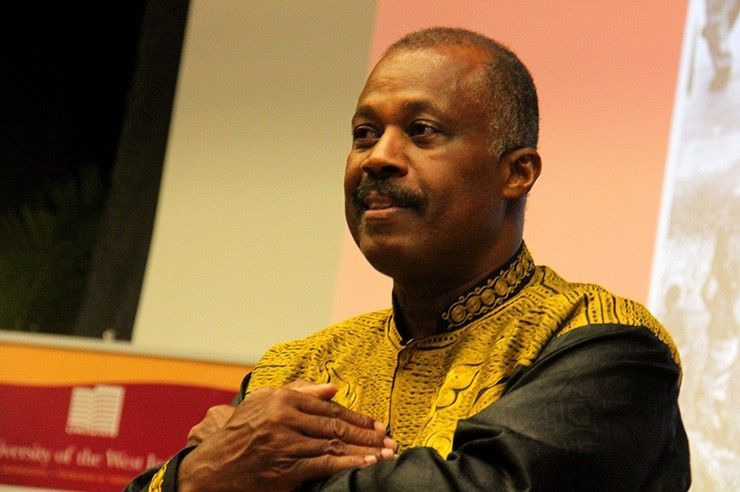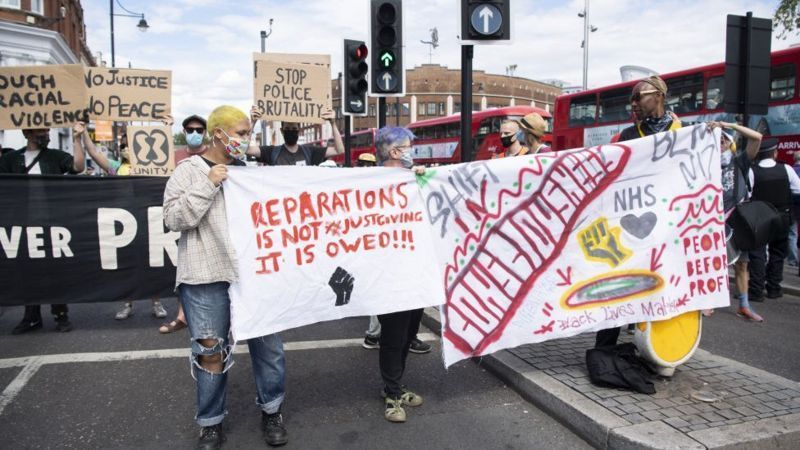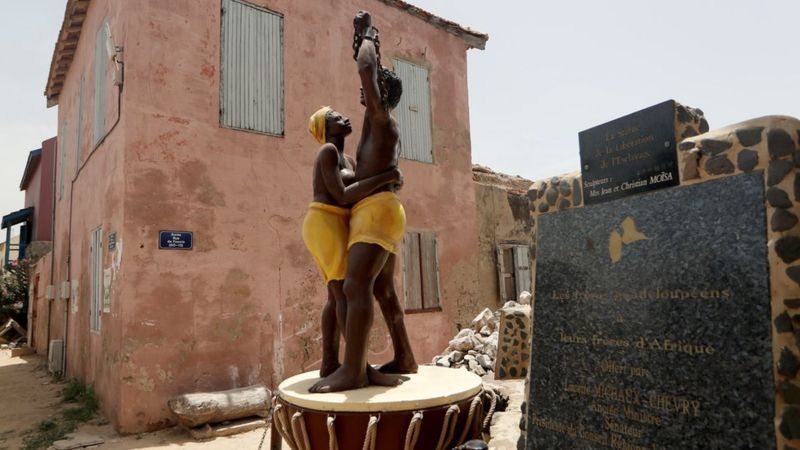
UK woman pays US$500K in reparations to UWI
Bridget Freeman, 70, an accomplished musician, bequeathed her properties worth half a million US dollars to a scholarship programme at UWI and noted that her grand piano is being kept in tune for the Cave Hill Campus as a contribution to the University’s new Faculty of Culture, Creative and Performing Arts.
 Vice-Chancellor of UWI and Chairman of
the CARICOM Reparations Commission, Professor Sir Hilary M. Beckles said
the University welcomes Bridget Freeman’s endowment describing it as
“an honourable demonstration of personal reparation and moral leadership
on behalf of her family'.
Vice-Chancellor of UWI and Chairman of
the CARICOM Reparations Commission, Professor Sir Hilary M. Beckles said
the University welcomes Bridget Freeman’s endowment describing it as
“an honourable demonstration of personal reparation and moral leadership
on behalf of her family'.
‘I was horrified’ about evils of slavery- Bridget Freeman
Vice-Chancellor of UWI and Chairman of the CARICOM Reparations Commission, Professor Sir Hilary M. Beckles said the University welcomes Freeman’s endowment describing it as “an honourable demonstration of personal reparation and moral leadership on behalf of her family”.
He added that her commitment to turning her awareness into action is deeply appreciated and will go a long way to providing freedom and fulfilment through the gift of education for many Caribbean students.
Freeman has also accepted UWI’s invitation to get involved as a co-patron of Global Giving 2021. “It is about reparation” she said. “We owe it. Once you see the ships of the slave trade, the giving back just seems so obvious”.
According to Loop News on August 20, 2021, it was a series about the Atlantic slave trade on the BBC that shocked Freeman, whose uncle was married into a family that owned plantation and slaves in the Caribbean.
Up until then, she knew almost nothing about the plight of free Africans who boarded ships and were taken throughout the world and sold into slavery.
“I was horrified and it touched me and I thought dear God, this is not right” she said.
Further research led her to UWI and UWI Global Giving— the regional university’s annual crowdfunding campaign which was established in 2016.
 Some people held banners calling for reparations during marches on Afrikan Emancipation Day in London in August 2020.
Some people held banners calling for reparations during marches on Afrikan Emancipation Day in London in August 2020.
Reparation
Reparation is a word most frequently used in relation to money - given as an apology or acknowledgement that something was wrong or unfair.
When slavery was legally abolished in Britian in 1838, slave owners were given money by the British government to compensate them for the loss of their slaves, which in those days were considered "property". These payments were known as reparations.
The some £20 million paid by the UK treasury to some 3,000 families that had owned slaves was finally paid back in 2015, by UK taxpayers.
But the former slaves didn't get any money for all the work they had done under slave labour, their lack of freedom, or the horrible conditions they'd suffered.
 More than 12 million Africans were
forcibly transported across the Atlantic to work as slaves. This statue
commemorating the abolition of slavery stands in front of the House of
Slaves museum in Dakar, Senegal, before being relocated to the
More than 12 million Africans were
forcibly transported across the Atlantic to work as slaves. This statue
commemorating the abolition of slavery stands in front of the House of
Slaves museum in Dakar, Senegal, before being relocated to the
UK refusing to pay reparations to VI
In 2013 and 2014 several Caribbean countries called on the UK and other European countries, including France, the Netherlands, Portugal, Spain, Norway, and Sweden, to pay reparations to their governments.
At the time the UK foreign secretary, William J. Hague said he "did not see reparations as the answer".
On Monday, September 7, 2020, a day after the 3rd anniversary of the destructive Hurricane Irma, the then Governor Augustus J. U. Jaspert sparked community outrage when he said the United Kingdom's (UK) position on paying reparations to the Virgin Islands for acts of slavery and the slave trade was not something that was being considered, hinting that the VI should expect nothing.
He also called for relics of slavery still present in the territory to be preserved despite community calls for those relics to be renamed so that it can reflect the legacy of Virgin Islanders who shaped the territory.
Despite calls for an apology, Mr Jaspert refused to apologise but instead saddled the Virgin Islands with a controversial Commission of Inquiry called during the coronavirus pandemic mere days before he exited the territory.
Meanwhile, Premier and Minister of Finance, Honourable Andrew A. Fahie (R1)in November 2020, said he too backs the rest of the region in its attempt at seeking reparations from Britain.
Premier Fahie bemoaned the fact that slave masters were compensated by the United Kingdom yet the descendants of slaves have yet to be paid.










